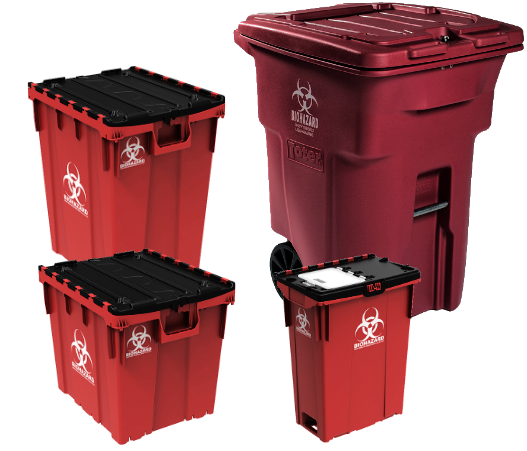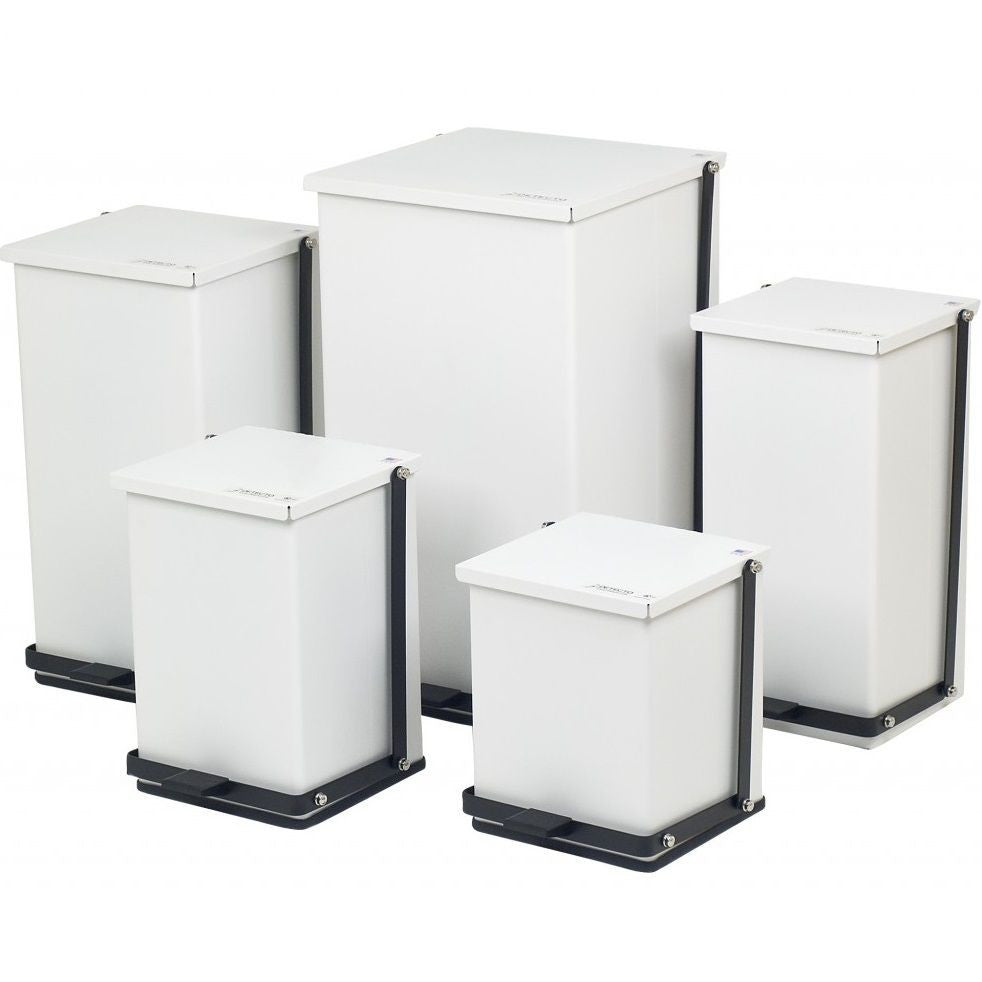Guardians of Cleanliness: Resident Medical Waste Removal Service for Your Assurance
Guardians of Cleanliness: Resident Medical Waste Removal Service for Your Assurance
Blog Article
Remain Compliant and Safe: Exactly How to Throw Away Medical Waste Correctly
In today's ever-changing health care landscape, making sure conformity and safety when it comes to medical waste disposal is of utmost significance. In this discussion, we will certainly discover the numerous kinds of clinical waste, the associated risks, the legal requirements, and the best methods for preserving a compliant and risk-free medical waste administration system.
Value of Appropriate Clinical Garbage Disposal
Proper clinical garbage disposal is of utmost relevance in ensuring the safety and well-being of both healthcare employees and the basic public. Clinical waste, that includes products such as utilized needles, polluted dressings, and expired medications, poses serious health threats otherwise managed and taken care of appropriately.

Moreover, incorrect disposal of medical waste can result in environmental contamination. When medical waste is not segregated, dealt with, or disposed of appropriately, it can locate its method into landfills or bodies of water, possibly contaminating the water, air, or soil resources. This can have damaging impacts on communities and human health, as unsafe materials may leach right into the atmosphere or be launched right into the environment.
Kinds Of Clinical Waste and Their Dangers
The diverse series of medical waste generated by medical care facilities presents numerous dangers that must be meticulously dealt with to ensure correct disposal and stop potential injury to public health and the setting. Medical waste can be categorized into different categories based upon its attributes and degree of danger.
One type of medical waste is infectious waste, that includes items that are infected with blood or other possibly infectious materials. This can consist of used needles, syringes, and various other sharp objects, in addition to cells, swabs, and dressings from clients with transmittable illness. Inappropriate disposal of infectious waste can cause the transmission of dangerous microorganisms and the spread of infections.
An additional category is harmful waste, which includes materials that are hazardous, combustible, corrosive, or responsive. This can consist of chemicals, pharmaceuticals, and specific clinical tools. Mishandling or incorrect disposal of contaminated materials can result in environmental contamination and present threats to the health of waste workers and the public.
Contaminated waste is an additional type of medical waste that should be very carefully taken care of. This waste includes materials that consist of contaminated materials, such as used radiation therapy sources or polluted lab products. Inappropriate handling or disposal of contaminated waste can lead to radiation exposure and serious health dangers.
Finally, non-hazardous basic waste, such as paper, product packaging products, and food waste, is likewise produced by medical care centers. While this waste might not posture substantial threats, it still requires to be effectively taken care of to keep sanitation and protect against the attraction of pests.
To ensure the safe disposal of clinical waste, medical care centers have to apply correct partition, treatment, storage, and transport methods. This consists of utilizing suitable containers, labeling, and training for staff, as well as abiding with neighborhood guidelines and guidelines. By addressing the threats connected with different kinds of clinical waste, health care centers can shield public wellness and the atmosphere.
Regulative and legal Needs for Disposal
In order to guarantee the appropriate and secure disposal of clinical waste, healthcare centers should follow legal and regulatory demands. These requirements remain in place to shield public health and wellness and the environment from the prospective hazards linked with medical waste. Clinical waste is classified as an unique category of waste because of its here are the findings potential to transfer transmittable illness and have unsafe substances.

Some common demands consist of the partition and proper packaging of clinical waste, using approved tags and containers, and the execution of safe handling and transportation procedures - medical waste removal near me. Healthcare facilities may likewise be needed to keep documents of their waste management methods and supply documents to regulatory authorities upon request
Failure to follow these regulative and lawful needs can cause fines, penalties, and reputational damage for healthcare facilities. It is, therefore, vital for doctor to prioritize compliance and develop durable waste monitoring protocols to ensure the proper and safe disposal of medical waste.
Ideal Practices for Safe Medical Waste Monitoring
Medical care centers have to stick to market finest methods to guarantee the safe and effective monitoring of medical waste - medical waste disposal services with WasteX. Applying these finest practices not just helps shield the atmosphere and public wellness but additionally lowers the danger of prospective legal and monetary repercussions
Among the key ideal techniques is the proper partition and containment of different kinds of medical waste. This includes making use of color-coded containers and plainly identifying them to make sure that each type of waste is disposed of appropriately. Furthermore, medical care facilities ought to have marked locations for storage and disposal of medical waste, with clear standards and treatments in place.
One more important aspect of secure clinical waste management is the training and education of healthcare personnel. All workers who deal with clinical waste needs to receive thorough training on the correct handling, storage space, and disposal procedures. It is critical to ensure that personnel members recognize the potential dangers related to medical waste and are outfitted with the necessary knowledge and skills to handle it safely.
Regular tracking and auditing of waste administration methods is likewise necessary. This entails regularly reviewing waste management procedures, conducting inspections, and maintaining accurate records. By keeping track of waste management practices, healthcare centers can recognize any kind of prospective problems or areas for improvement and take corrective activities as necessary.
Finally, health care facilities should focus on the usage of ecologically friendly disposal methods whenever feasible. This consists of using waste treatment modern technologies such as autoclaving or incineration, which can aid minimize the volume and hazardous nature of clinical waste.
Eco-Friendly Solutions for Medical Waste Disposal
Executing eco-friendly remedies for clinical waste disposal is crucial for medical care facilities to minimize ecological effect and ensure lasting practices. Typical techniques of medical garbage disposal, such as incineration and landfilling, have been located to release harmful toxins into the air and infect soil and water resources. Consequently, there is a growing demand for alternative methods that are both ecologically pleasant and safe.
These systems utilize sophisticated technologies to safely refine clinical waste within the healthcare facility itself. By treating the waste on-site, transport exhausts and risks associated with off-site disposal are minimized.
An additional eco-friendly site link method is the adoption of recycling programs for sure kinds of clinical waste. Products such as glass, plastics, and metals can be recycled instead of disposed of in land fills. By applying partition and reusing programs, healthcare facilities can considerably decrease their waste volume and reduce page their environmental footprint.
Moreover, health care centers can check out the usage of recyclable medical devices and materials. By going with recyclable products, instead of single-use alternatives, the amount of waste generated is significantly reduced. Reusable things can be decontaminated and made use of numerous times, leading to expense savings and less ecological influence.
Verdict
In verdict, appropriate disposal of medical waste is essential for maintaining conformity and making sure security. Understanding the sorts of clinical waste and their connected risks is very important in order to apply the proper disposal techniques. Sticking to lawful and regulative demands is important for avoiding fines and safeguarding the environment. Adhering to finest practices for secure medical waste monitoring and checking out eco-friendly remedies can add to a sustainable and accountable method to garbage disposal in the health care industry.
In this discussion, we will discover the various types of clinical waste, the associated dangers, the lawful requirements, and the ideal practices for preserving a safe and certified medical waste monitoring system - medical waste removal near me.One kind of medical waste is transmittable waste, which consists of products that are polluted with blood or various other possibly transmittable products.Radioactive waste is another kind of clinical waste that have to be meticulously taken care of. Clinical waste is identified as a special group of waste due to its potential to send infectious diseases and consist of damaging compounds
Following best methods for risk-free medical waste administration and exploring eco-friendly services can add to a responsible and lasting strategy to waste disposal in the healthcare market. medical waste disposal services with WasteX.
Report this page